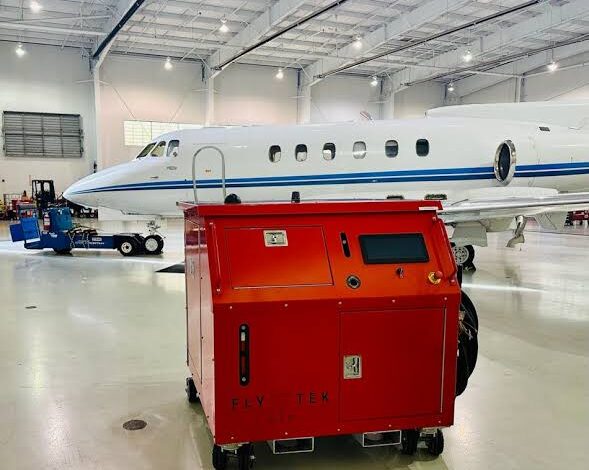Hydraulic Mule: The Powerhouse Behind Aircraft Testing and Maintenance

Within the intricate world of aviation, the Hydraulic mule is an essential yet frequently disregarded part. This sturdy apparatus is essential for testing and maintaining airplanes and ensures that every aircraft system runs safely and flawlessly. Here, examine the vital function that the Hydraulic power unit plays in aviation maintenance and how it affects the reliability and efficiency of aircraft worldwide.
1. Essential for Hydraulic System Testing:
In aviation sector that specialisation of the HPUs is maximised as it is key for diagnostics of the aircrafts’ hydraulics system including components such as the landing gear, brakes, and control surfaces. These units are the irreplaceable aid throughout the process of verification and validation of the creation that is flight the only condition the system would encounter under the actual flight circumstances themselves .This way the grounded maintenance team can sense the symptoms of defects, ensure proper function, identify the integrity as well as confirm the system is ok for service.
Because hydraulic systems is the part of an aircraft and the performance, therefore identification and rectification of problems or discrepancies needed to be considered. That is the answer of comprehensive testing that will give an aircraft more safety.
2. Reducing Ground Time for Aircraft:
Time spent on the ground can be expensive for any aircraft. HPUs expedite the maintenance process by facilitating rapid and effective testing of hydraulic systems, markedly diminishing downtime. Because of this increased efficiency, airplanes will remain in the air longer, fulfilling their intended purpose, which will increase airline profitability and operational effectiveness.
The ability to promptly detect and resolve problems not only expedites the maintenance process but also plays a major role in upholding the strict timelines necessary for airline operations, guaranteeing that fleets are consistently accessible for servicing.
3. Enhancing Safety:
Safety is the utmost priority in aviation. HPUs are critical in averting hydraulic failures that could precipitate unsafe conditions by ensuring that aircraft hydraulic systems undergo thorough testing and maintenance.Headed by rigorous and careful testing, the systems’ functionality is boosted taking into account security and reliability of transport against accidents and incidents thus ensuring the safety of travellers on board.
The regular checks and preventive maintenance implementations of HPUs ensure that any problems are spotted and subsequently addressed much earlier, before their compromise the safety level of the aircraft, which is a vital process for the aviation industry to provide its safety services.By incorporatinghydraulic mule into regular maintenance routines, aviation professionals can ensure that aircraft operate safely and efficiently, providing peace of mind to everyone involved in the operation and maintenance of aircraft. This level of diligence and attention to detail in the maintenance process underscores the industry’s unwavering dedication to upholding the highest safety and reliability standards in air travel.
4. Economical Maintenance Solutions:
Allocating resources to secure a hydraulic mule for aircraft maintenance activities offers substantial financial advantages in the long run. The capability to conduct in-house testing and troubleshooting of hydraulic systems enables airlines and maintenance operations to circumvent the steep expenses tied to external service provisioning.
Additionally, this approach mitigates the risk and associated costs of unplanned maintenance and repairs, further underscoring the economic benefits. This strategic investment not only streamlines the maintenance workflow but also ensures a more predictable and controlled expenditure on aircraft upkeep, contributing to more efficient financial management within aviation operations.
5. Adaptable and Flexible Solutions:
HPUs exhibit remarkable adaptability, allowing for customization to suit the unique requirements of various aircraft types. These units can be fine-tuned to replicate a broad spectrum of operational scenarios, from modifying pressure levels to altering flow rates.
This flexibility renders them an invaluable asset within any aircraft maintenance facility, empowering technicians to precisely address and rectify hydraulic system concerns across a diverse fleet. Adapting to the specificity of different aircraft enhances the efficacy of maintenance procedures and ensures that each aircraft receives the most accurate and effective service possible, maintaining optimal performance and safety standards.
Conclusion:
Hydraulic mules are critical to maintaining high performance and safety standards for hydraulic systems, making them indispensable for testing and maintaining aircraft. Their importance in aviation is highlighted by their ability to reduce aircraft ground time, improve safety, and provide affordable maintenance choices. As technology develops further, these units will be able to adjust even more to meet the growing demands of aircraft maintenance while maintaining dependability.



